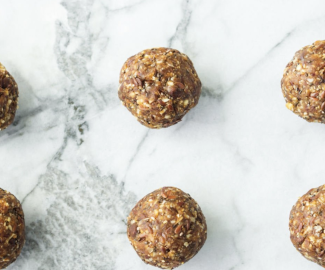
Creatine is a supplement I talk about often in consults with my perimenopause clients and clients wishing to gain lean mass and currently undertake resistance training. I realised I haven’t included a social post, which is not helpful for those of you reading here and not yet working with me directly!
What is it?
It’s an amino acid made up of glycine, methionine, and arginine. which you can gain from diet (meat & fish) or via supplementation. Increasing creatine intake increases phosphocreatine levels. Why is this important? When we exercise, we use ATP, when this runs out the body builds its own ATP, which we do this better at rest. We use phosphocreatine to build ATP, so if you have additional stores, you can make ATP a little faster so you can train harder i.e. few more reps/lift a bit heavier resulting in increased lean muscle mass.
- Did you know that creatine can help preserve muscle mass during perimenopause? As women age and hormones change, women tend to lose muscle mass and gaining muscle mass can take a little more effort than in younger years. This can affect mobility and overall health.
- How much creatine should you take? The recommended dosage is 3-5 grams per day. However, it’s important to consult with a healthcare professional before starting any new supplement to ensure dosing is correct and it is right for you. Many people do a loading dose of 20g over a period of 4-5 days; however, creatine has a cumulative effect so you can avoid some of the side effects such as bloating with higher doses and take around 5g daily and you will reach the same saturation point but in a slightly longer period. It is only by a few weeks to do it this way, which can then avoid the side effects of the loading dose.
- Creatine doesn’t do the work for you. You still need to engage in regular resistance training exercises that challenge your muscles. Lift heavy!
- Not all creatine is created equal. Look for creatine monohydrate, as it’s the most researched, inexpensive, and effective form of creatine. It is a highly studied supplement and is one of the safest to take at the recommended doses.
- In addition to its muscle-building benefits, creatine has also been shown to improve cognitive function and overall health. Elderly people and vegetarians can see some great benefits with creatine use.
- Creatine helps with energy as it can increase the amount of ATP (your body’s energy source) in the cells. This then helps with being able to lift heavier (average of 20%) and more reps.
- You may notice an initial increase in weight due to intracellular water increase (water inside the cells) this is not fat gain. The water retention is seen with the higher loading dose and more of a grey area when taken over a longer period.
References
PMID: 35984306 PMID: 30762623 PMID: 14636102 PMID: 3557850 PMID: 33800439 10.1186/s12970-021-00412-w






Leave a Reply